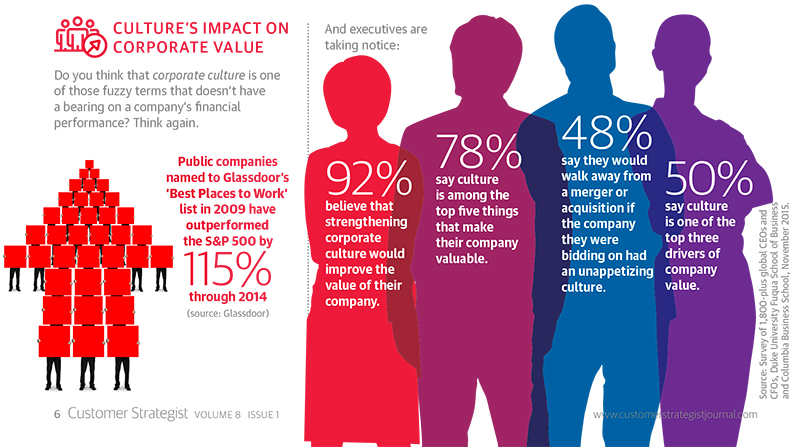“Companies that learn the fastest and adapt well to changing environments perform the best over time,”
– Edward Hess (Professor of Business Administration at University of Virginia’s Darden School of Business)
Learning communicates the message of evolution and optimism. Only a few leaders are capable of understanding the depth of this fact, but those who do, actually make their corporate workplace environment something of the next generation. For a team to effectively survive and thrive, it is highly important that they introduce elements of adaptability, so team members can intermittently benefit from them. One way of doing so is to continually coax the mind into feeding on skill building constituents.
Many ardent millennials are seeking to join organizations which are effectively compassionate towards enlightening employees on the latest happenings in the world. In a nutshell, generation z has more faith in organizations rather than educational institutions when it comes to grooming personalities professionally. But, here’s the real question; are organizations willing to implement such change? If you want to develop a learning culture within your organization, it is time you heed attention to the following:
What Is a Learning Culture Within an Organization?
An organizational culture which promotes a development mindset among employees and encourages them to learn can be defined as a learning organizational culture.

Different organizations have defined learning cultures differently in their own perspectives. For instance, New York Life Insurance Co. supports a learning culture and defines it as,
“Trying to make each moment about learning, about establishing the intention to learn in every interaction, every relationship and every chance to lead,”
– Michael Molinaro (Vice President of Talent Management).
Whereas, when we talk about SAP, their dedication plays a vital role in explaining what a learning culture means to them. According to Dearborn of SAP:
“You want people who are curious, committed and who understand their role in the bigger picture of your company,”
American Express has accumulated a total of 62,800 employees. They commemorate learning culture as a significant source which guarantees a high ratio of employee retention and satisfaction.
“High pulse rates lead to high retention, when employees are consistently learning, they are happy.”
David Clark (Senior Vice President and Chief Learning Officer)
Hence, there is no fixed definition of a learning culture that can best be defined in words. But, one thing is for sure and backed by some of the research experts such as Bersin, that organizations which promote a learning culture are 30% more likely to become future market leaders than industries which aren’t learning at all.
How to Cultivate a Perfect Learning Culture Within an Organization?
The Perception Change Among CEOs
CEOs of some of the most renowned organizations in the world, such as American Express, Bridgewater Associates, and Container Store, have cracked the myth that true success only comes when employees exhibit a true commitment to learning. Gone are the days when being smart meant being the most knowledgeable or having the right mindset to counteract pitfalls and mistakes. Today, among the millennials, the definition of being smart has dramatically transformed on the corporate scale.

As an estimate, it has been evaluated that organizations grow by leaps and bounds when they are able to critically think what makes their specific product or service unique shine out among other similar ones on the market. Therefore, how do organization cross over such thresholds? They do it by outsmarting others. According to modern leaders and executives, critical thinking and motivated learning are the two most important factors which make an individual smart within an organization.
Workplaces which motivate their employees to become critical thinkers and urge them to research are greatly contributing towards the development of a learning culture within an organization.
Expansive Learning Provides Meaningful Feedbacks
We live in an era where organizations tremendously concentrate their developmental interventions on the feel-good approach, rather than focusing on negative feedbacks. But in case you are looking to implement change, you wouldn’t want anything to come in the way that leaves you unsatisfied or in a state where you are left unjustifiable for your actions. If you want to improve the performance of your employees, you need to specify where they are wrong.

Most managers avoid getting into difficult conversations with employees where they have to tell them off regarding their performance. Therefore to avoid such interactions, they ultimately end up giving positive feedback instead of negative ones. Now, this might not be an effective strategy if you are looking to fill the curiosity gap for focused learners of today. These days, people heed negative feedbacks to learn where they are lagging behind due to their ignorance and knowledge limitations.
If employees are showing an inclination to listen, it is also essential that managers should communicate negative criticism in a constructive and delicate way as people are less receptive to being questioned. A learning culture will only be promoted if things are delegated in the right manner.
Reward Those Who Promote Continuous Learning
It is impossible to observe any radical change taking place in the organizational culture of your team if you haven’t introduced a formal reward system that keeps the employees motivated. Even then, the effectiveness of implementation cannot be completely certified unless the rewards are lucrative enough.
Although managers do understand the importance of effective learning, most of their ideas are short-term and are focused on optimizing the performance. It is an unfathomable connotation that performance is maximized when a person is not learning. But most managers fail to understand that boosting productivity can only guarantee short-term results, but it will tragically fail ay helping them glean the desired long-term goals. Bersin reports that an average employee only has 24 minutes of formal learning by analyzing statistics for more than 700 different organizations.
Rewarding curiosity does not only mean that you are inclined towards praising your employees and helping them boost their Morales, It also means praising those who are eager to learn and develop. Ultimately, a climate develops where critical thinking becomes a core value for the employees. They acquire the necessary confidence and feel encouraged to ask questions from the authorities even if it becomes an element of discord. Critical thinking is important for your business in case you want innovative solutions.
Hire People Who Are Curious to Learn
Most management face problems surrounding the training and development of employees. However, the real cause of ineffective employee development does not lie in how they are being trained but ask yourself! are they the right people to be hired at your organization? Hiring the right people significantly cuts your problem down by 50% and saves a whole lot of effort and cost incurred in training them.
Effective training and development will easily help you pick out the potential ones from among the employees rather than encourage them to go against their potential. But is having potential ones onboard where you should draw the line? Think again. You need people who are curious to learn because curiosity will trigger their mind to take a deeper leap so they can resolve critical matters more effectively.
Curiosity is an inbuilt feature which can only be unlocked when people are more inclined to explore. A culture formulated with people who are enthusiastic to explore and cover new grounds is one that truly survives and thrives in the long run.
Support Risk Taking, Build Teams Not Stars
Now, here’s the tricky part, you need to understand that people will fail and you need to accept it. It is an associated risk that comes with the establishment of learning cultures. In fact, some leaders believe that they shouldn’t only tolerate, but also encourage the idea of supporting risk takers if they are a part of a learning culture within the organization.

They say if you’re too comfortable with what you are doing, then there is a high possibility that you would ever face failure. In fact, if you fear what consequences failure would bring to your doorstep, you might become the person who falls short in risk-taking. For a leader, it is highly essential that they become better listeners and support teams even in the face of adversity.
Risk taking is not a bad option. If you are not taking risks, you aren’t experimenting to learn something new and henceforth, you are relatively falling short at building strong teams that promote learning.


